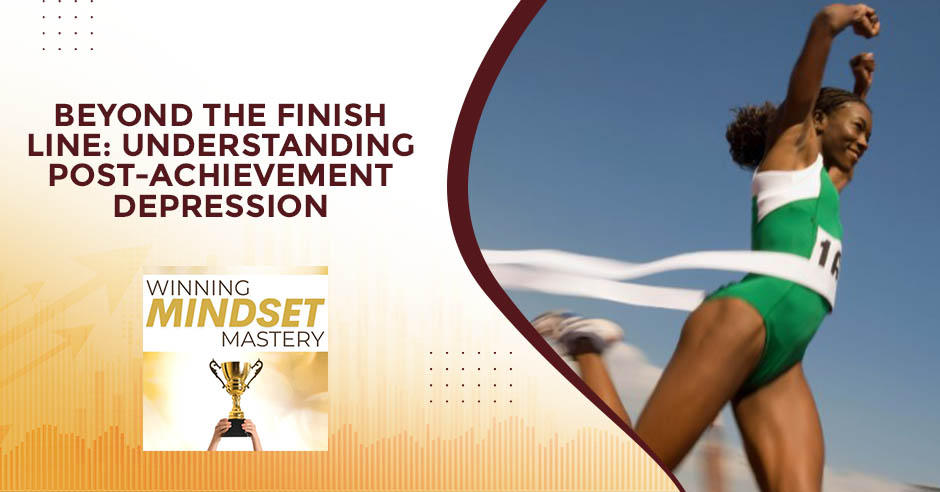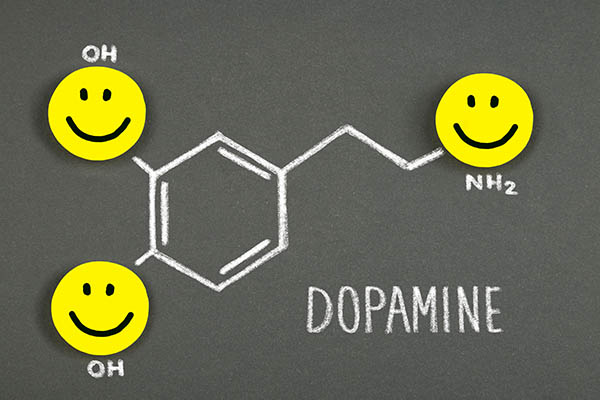
As we strive towards achieving our goals, it’s important to acknowledge that sincere satisfaction isn’t solely obtained by reaching them; but by cherishing the unwavering bliss and meaning we discover during the journey. In today’s episode, we tackle a subject that often lurks in the shadows, stealing our joy without us even realizing it: post-achievement depression. Have you ever poured all of your passion and effort into a meaningful goal, persistently chasing after it with determination, but found yourself feeling empty and dissatisfied once you finally attained it? If so, you’re not alone. Many of us have experienced this perplexing emotional state, wondering why success didn’t bring the expected elation. We’ll shed light on its origins and reveal practical strategies to prevent it from overshadowing your accomplishments. Join us as we embark on a journey to understand and conquer post-achievement depression.
—
Listen to the podcast here
Beyond The Finish Line: Understanding Post-Achievement Depression
I am glad you’re here. We’re going to talk about something that could be stealing your happiness, and you may not even know what it is, what to call it, or how to prevent it. I am here to help. That topic is post-achievement depression. If you’ve ever experienced the feeling of single-mindedly pursuing a goal and then you get it, and getting it is a huge letdown, that’s what I’m talking about.
For me, this always happened when I was pursuing things with the mantra, “If I get X, I’ll be happy.” We talked about this in an earlier episode when we talked about, “I’ll be happy when.” For those folks who are driven to accomplish things, this happens and they may not understand it at all. Some of my “I’ll get this and I’ll be happy” things were a college degree. When that was a letdown, it was my MBA, when I get married, or when I make my first $1 million.
None of those things felt the way that I thought they would. I was sad and I didn’t understand what was going on and what I was doing wrong. I was experiencing something called the arrival fallacy. It’s this idea that once we have something, we will be happy once and for all. They will live happily ever after with this thing they have achieved which doesn’t exist.

Post-Achievement Depression: The arrival fallacy is the idea that once we have something, we will be happy once and for all. They will live happily ever after with this thing they have achieved, which doesn’t really exist.
There are lots of folks who talk about this. There are famous quotes and you may not understand what they mean by it. I know I didn’t. They talk about it being about the journey, not the destination. From a neuroscience perspective, we are motivated by dopamine. That chemical in our brain drives us to pursue goals. That chemical is super active in the pursuit of things. It is our incentive-reward system. It gets us going and doing the things that will lead to this goal that we think is important.
However, once we get there, we switch over to the consummatory response system. I love that name because consummatory makes me think of when I want a piece of a key lime pie. I so want it and I’m so excited to have it. The first bite is amazing. The second bite is pretty good, but by the middle of the pie, you’re not as excited. After, you’re almost done with a carb coma.

Post-Achievement Depression: Dopamine gets us going and doing the things that will lead to this goal that we think is really important. However, once we get there, we switch over to the conservatory response system.
If you think about it, it’s a little bit like post-achievement depression. You’re let down. You had it, but maybe it wasn’t as good as you thought because you didn’t enjoy it. I always used to say, “I forgot to taste it because I was all about getting that thing.” This is a very real phenomenon for anyone who goes after a goal in a single-minded way. You’re trying to build a business, and that is the thing that you do to the exclusion of everything else. Your business hits $100,000 in revenue, $1 million in revenue, or $10 million in revenue. None of those milestones feel the way you thought they would.
You’re working so hard toward them. You’re not enjoying the building of it. You’re not enjoying what you are doing to create it. That is the secret of avoiding that post-achievement depression. If you ask any Olympic athlete or huge star when they have achieved these big goals, they have experienced this. Knowing that it’s going to happen or being aware is the number one way that you can process through it, avoid it to some point, and at least avoid the shock of it and how down you feel because it has happened.
The second is enjoying the journey or understanding that the pursuit of the goal is a lot of where the happiness is. You see this sometimes with golfers who are always practicing golf. They enjoy that practice or that routine. Someone who is a huge runner who loves to run will enjoy the practice of running more than a marathon or a hundred miler. That’s where a lot of the magic is.
A way to make that work is to stack those journeys. Stack different journeys instead of dealing with, “I’m only going to pursue this one thing and I’m not going to do anything else. I’m not going to have friends and hobbies. I’m going to pursue this one goal because it will feel so great when I have it.” One is a hobby. One is learning something that you enjoy. One is pursuing that goal. One is pursuing the relationships that you have in your life so that none of them is the end-all-be-all. Even when you have gotten it and you don’t have all that dopamine firing you up and you feel a little bit of a letdown, you’ve got these other things to focus on, which helps you smooth out those peaks and valleys.

Post-Achievement Depression: Sometimes, avoiding and trying not to be is what prolongs it and makes it more painful.
The third way to help yourself with this post-achievement depression is to allow the feeling. A lot of times when we feel down or sad, we want to fight against it, “How do I distract myself? How do I prevent myself from feeling this? How do I ignore it?” If you allow yourself to feel it the same way you might allow yourself to feel that a pool that you’re stepping into is cold, you get used to it faster and it passes more quickly. Sometimes avoiding and trying not to be is what prolongs it and makes it more painful.
When you enjoy that journey, instead of looking for that destination, everything speeds up. Share on XThe good news in all of this is it allows you once you master this process to be happy more often. Think about it. The destination comes every once in a while. The journey is the entire time. Learning how to enjoy that journey and enjoy how psyched you feel to be pursuing something that matters to you means that much more of your life will be enjoyable and happy. When you’re doing it this way, don’t be surprised if you achieve a lot more of your goals a lot more quickly. When you enjoy that journey instead of looking for that destination, everything speeds up. Here’s to your success.





